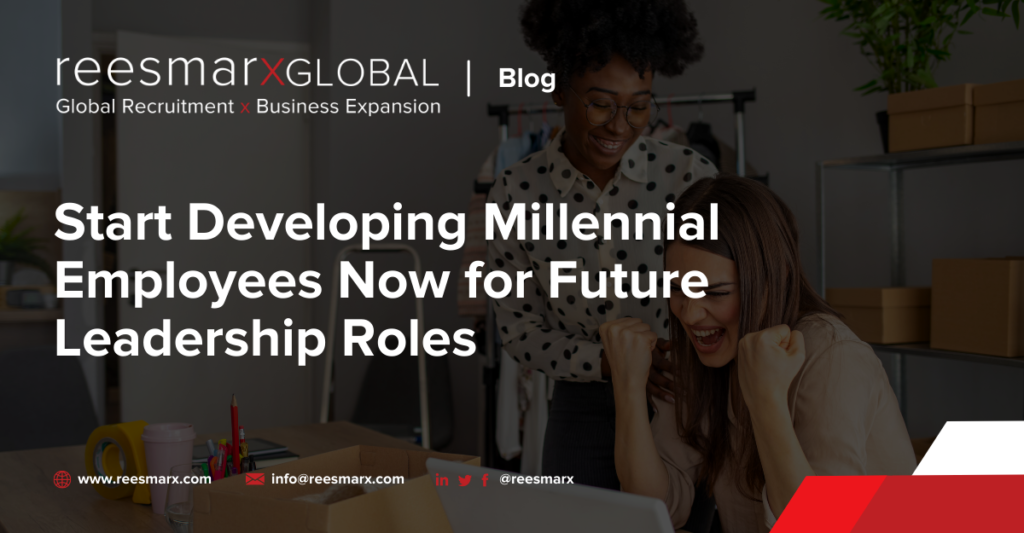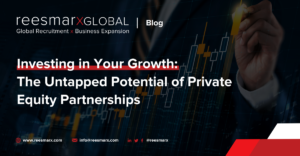Did you know that the first millennial professionals began entering the workforce (post-graduates) over a decade ago? When we think of millennials in the workplace, is can be easy to forget that many of them have significant and strategically focused experience, with an eye on future advancement.
One of the obstacles that organizations can face, is developing that talent with the help of senior management and executive leaders, who may view the skills and ambitious drive that millennials have as a threat. For a variety of reasons, the retirement rate in professional roles is lower than what was forecast by many; the Baby Boomer population segment worked hard to advance, and they are not ready to retire just yet.
However, it is important for corporations to take a closer look and create a formal legacy training, mentoring and development plan. One that will ensure that the future managers, supervisors and executives of your organization can be nurtured from within, and benefit from decades of experience that may be departing your company as retirement aged staff begin to transition.
That experience from senior staff members in every department of your organization is very valuable. Now is the right time to start investing time and development for employees under the age of forty years, who have the opportunity to leader your organization into a new era of innovation and growth.
What does an effective legacy strategy look like, for corporations? What kind of training should be offered and how do you determine your top talent from within the organization? Our Senior Recruiters have some advice and can help you implement a legacy plan to put your business on the right path for talent retention and development.
Millennials Have Strong Corporate Culture and Engagement Expectations
Baby Boomers may have defined themselves by their lifestyles outside of work, but the next generation of managers and executive leaders from the millennial group have a strong sense of identity to the corporate cultures of the organizations that they work for.
This is an important factor now, as businesses seek to recruit them. In the next ten years, retention of millennials will depend on a rich corporate culture that engages and acknowledges their contributions to the goals and performance of their organization.
Social responsibility matters to millennials, who seek fulfillment by contributing to businesses who have a positive impact on areas that are personally important to them. Environmental involvement, charitable contributions and volunteerism are effective ways to engage them.
Like generations before them, millennials also prioritize work / life balance, but they are more likely to leave an employer that does not foster that culture. They value vacation time and experiences over monetary incentives, and they have already started to impact the business world by being fluent digital professionals. They are equipped and technologically able to do virtually any job remotely, and favor employers who allow work from home opportunities, that help them balance growing family needs.
While the Baby Boomers may have appreciated traditional feedback in the form of scheduled performance reviews, performance-oriented millennials expect and seek mentorship, growth opportunities and more frequent personal feedback from managers. They also favor organizations that provide continuous learning opportunities, as they are ambitious and driven to advance in their careers.
Looking at the needs of your future workforce, how can your organization start to implement programs, employee perks and lifestyle benefits and different incentives to motivate (and retain) highly skilled millennials? Businesses have already started to adapt to the changing needs of millennials moving up through the organization, to offset problems with recruitment and retention of this population group.
Get Ready for the Workplace Gap (and Talent Loss) as Baby Boomers Retire
Filling the workplace gap as more experienced Baby Boomers retire is going to be a global challenge. There are 74.1 million Baby Boomers worldwide and they remain the largest living adult population. By the year 2030, this population group is expected to number 61 million, with a mean (average) age of 72 years. Starting an aggressive legacy program now to train experienced millennials to fulfill the gap, is critical to the success of any organization.
When hiring for diversity, remember to closely monitor age demographics and evaluate where talented millennials can be placed in your organization, to benefit from mentoring and learning from senior professionals with decades of experience. For many organizations that will mean hiring and developing more staff now, who are currently aged 30 to 40 years to diversify your internal talent pool.
Our Senior Recruiters and Consultants serve leading organizations worldwide, in thirty countries. Contact us to learn more about our recruitment services, and how reesmarx can help you build a successful workforce and management legacy plan, to keep your business growing now and in the future; start investing in tomorrow’s leaders, today.






